There are many reasons Democrats lost. They suffered from an unpopular incumbent, were punished for the high inflation of the last years, and fielded an uninspiring candidate who never managed to put forward a clear governing agenda. But the most fundamental reason why so many voting groups that had long been supposed to buoy blue fortunes have turned red—and the one that is most likely to dog Democrats’ chances in upcoming electoral cycles, when they no longer bear the burden of incumbency—lies in the fact that they are seen as being far outside the cultural mainstream.
Democrats now speak with the inflections and the vocabulary of the coastal, college-educated upper crust of the American meritocracy. This is rapidly alienating a multiracial coalition consisting of everyone for whom there is no space in that upper crust—plus those who resent the constant self-monitoring and self-censorship that is required to remain a member of it.
To overcome the damage to their increasingly toxic brand, Democrats need to change how they talk and what they say. This includes jettisoning some of the most unpopular elements of the left’s identitarian thinking, popularly known as “woke,” that they took on over the past decade—the emphasis on equity and DEI, the vocabulary of BIPOC and LatinX. But it goes much further than that. Democrats need to convince Americans that they are willing to speak the truth even when that truth shocks the activist groups that make up a big part of their base; that they sympathize with ordinary citizens who are fed up with crime and chaos rather than with the petty criminals who disturb public order; and that they have figured out how to stand up for inclusion without violating common sense.
Will the American left be able to effect such a profound self-transformation?
It is tempting to believe the left is finally turning away from wokeness. Back in September, for example, The Economist reported a modest decline in the frequency with which terms like “intersectionality” and “microaggression” were mentioned in mainstream media or scholarly articles. The magazine duly concluded that we had passed “peak woke.”
Now, the open disavowal of some identitarian positions to which Democrats seemed deeply committed until a couple of weeks ago has seemed to validate that prediction. Since Trump’s victory, elected officials like Gilberto Hinojosa, the outgoing chair of the Texas Democratic Party, and Rep. Seth Moulton, a moderate Democrat from Massachusetts, have sensibly urged Democrats to ditch their most unpopular positions on cultural questions. “Democrats spend way too much time trying not to offend anyone rather than being brutally honest about the challenges many Americans face,” Moulton acknowledged last week. “I have two little girls, I don’t want them getting run over on a playing field by a male or formerly male athlete, but as a Democrat I’m supposed to be afraid to say that.”
Many Democrats I have spoken to in the last few days are hopeful that the vibe shift on the left will prove real. According to New York Times opinion columnist Maureen Dowd, “Some Democrats are finally waking up and realizing that woke is broke.” Longtime Democratic strategist James Carville seems to share the same opinion. Democrats, he told Dowd, are fleeing identitarian positions “like the devil runs away from holy water.”
But I am skeptical that this is how things will ultimately turn out.
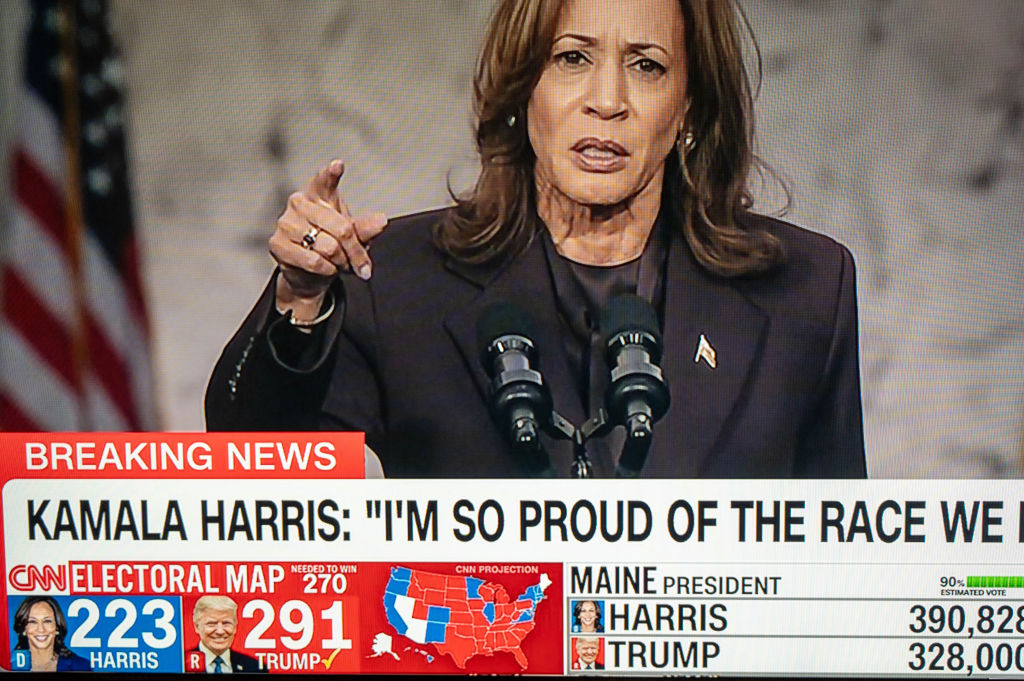
The first indication that Democrats will find it hard to pivot away from their toxic brand of identity politics in any meaningful way is that those who called for a repositioning are already being punished for speaking their minds. Hinojosa, for example, was quickly forced to apologize for his remarks; a day later, he resigned from his position. Moulton even attracted fury from inside the house: Matt Chilliak, his campaign manager, quit in apparent protest at his comments. Some of his former staffers called on Moulton to apologize. The chair of political science at Tufts University said the department would no longer send interns to his office (though the university quickly walked back his comments).
Far from agreeing with the diagnosis offered by Hinojosa and Moulton, many parts of the party are in outright denial about the extent to which what Carville has aptly named “faculty lounge politics” is harmful to its electoral prospects. Jon Stewart, who for all of his affected irreverence is usually a reliable spokesperson for the Democratic mainstream, summarized the emerging consensus on his show last week. Kamala Harris, he claimed, did not run on identity politics, and so identity politics was not responsible for her defeat. “They didn’t do the woke thing,” Stewart quipped. “They acted like Republicans for the last four months.” Some progressive journalists with big platforms were even more dismissive. According to one, the election was decided not by the hope for “a better life for your family and future for your community,” but rather by a widespread “desire to dominate and inflict cruelty on outgroups.”
Moreover, each of the party’s fractious wings is insisting that Harris lost because she did not follow its preferred policies and political style. Sen. Bernie Sanders and his allies have been blaming the defeat on the unwillingness of Democrats to fight for more economically progressive policies. Meanwhile, other wings of the party have blamed the defeat on the fact that Democrats were insufficiently radical on cultural issues or did not change course on the conflict in the Middle East. Nearly all senior Democrats believe that the party should change; it just so happens that most of them think it should come to agree with what they have said all along.
It is so difficult for Democrats to coalesce around a real course correction in part because many of their most unpopular positions are downstream from their fundamental view of the world. For decades, Democrats have conceptualized the country in a way that is deeply suffused in identity categories. Rather than addressing voters who happen to be Latino, they believe that they need to mobilize “the Latino community.” Rather than recognizing the fluidity of American identity, they believe that the country is fundamentally divided between whites and “people of color.” And rather than believing that the solution to the undeniable fact of persistent discrimination and disadvantage lies in the realization of universal ideals, they increasingly assume that the rights and responsibilities of each citizen should fundamentally depend on the identity group into which they were born.
Commentators who think that Democrats are about to ditch wokeness usually assume that doing so would take a course correction only on a few hot-button issues. Avoid using the term LatinX, stop saying that you want to defund the police, acknowledge (if you are really brave) that it isn’t entirely obvious whether trans women who have undergone male puberty should be allowed to compete in women’s sports, and you’ve fixed the problem. But Democrats’ unpopular stances on these issues are merely a symptom of a much more deeply rooted way of seeing the world—and unless they undergo a fundamental transformation in that worldview, they will quickly embrace new positions on cultural issues that will turn out to be just as unpopular.
This finally brings us to the most fundamental obstacle to a real course correction: the staffers, the donors, and the activists who are the real decision-makers in the Democratic Party. Democrats are disproportionately dependent on young staffers who have recently graduated from prestigious colleges. Many of these staffers have been socialized in the hothouse culture of campus activism in which one supposedly offensive remark can lead to lasting social ostracism. And since they stand at the beginning of their careers, they often have a greater incentive to demonstrate ideological purity than to win the next election.
Campaign finance poses another structural problem. Many people assume that (to use the lingo of professional fundraisers) the “high net-worth individuals” and “ultra-high net-worth individuals” who now provide Democrats with a big percentage of their cash tend to pull the party to the center. But while some of them do have more moderate views on economic questions than the average Democratic primary voter, there is also ample evidence that their view on cultural issues tends to be far more progressive.
Finally, Democrats have over the past years become increasingly deferential to the many well-funded activist groups that now make up a key segment of the left. Their attempts to target particular demographic groups in particular heavily lean on activist organizations whose affluent and highly ideological leaders claim to speak on behalf of millions of ordinary Americans. As the New York Times’ Ezra Klein recently pointed out, when leaders of the Democratic Party want to get a sense of what various demographic groups want, they ask the constituent members of its “nonprofit complex”—but the answers these give have turned out to be “really, really deceptive.”

The composition of the Democratic coalition is a big part of the reason for the party’s ideological intransigence, as has been obvious over the course of the past days. The profile of the average Democratic staffer helps to explain the revolts that Hinojosa and Moulton faced as soon as they tried to ditch a small part of the party’s identitarian orthodoxy. The cultural commitments of its donor class help explain why progressive district attorneys who turned out to do significant damage to the party’s brand could count on lavish campaign contributions. And the overreliance on astroturfed activist groups with little organic connection to actual voters helps explain the wide gulf between the positions Democrats take on immigration and the view of actual Hispanic voters.
American political parties don’t have a real leader unless they hold the presidency or are in the middle of a presidential campaign. As a result, it is highly likely that the Democratic Party will continue to be cacophonous until the next presidential primaries. This Democratic cacophony may well include a few more voices that are openly critical of the party’s identitarian dead end than before—but it will also feature many politicians who want the party to continue deferring to the donors, activist groups and young staffers who remain deeply immersed in those same identitarian ideas.
The Democrats’ fight over wokeness will last for at least another four years. Their disastrous defeat this year suggests that, if it does eventually end, it will likely be in one of two ways: Either a representative of the party’s small anti-woke faction manages to win the 2028 primaries on a new and more inclusive vision for the future of the country—or a hand-picked successor to Trump inflicts an even more decisive loss on the Democratic Party that fall.
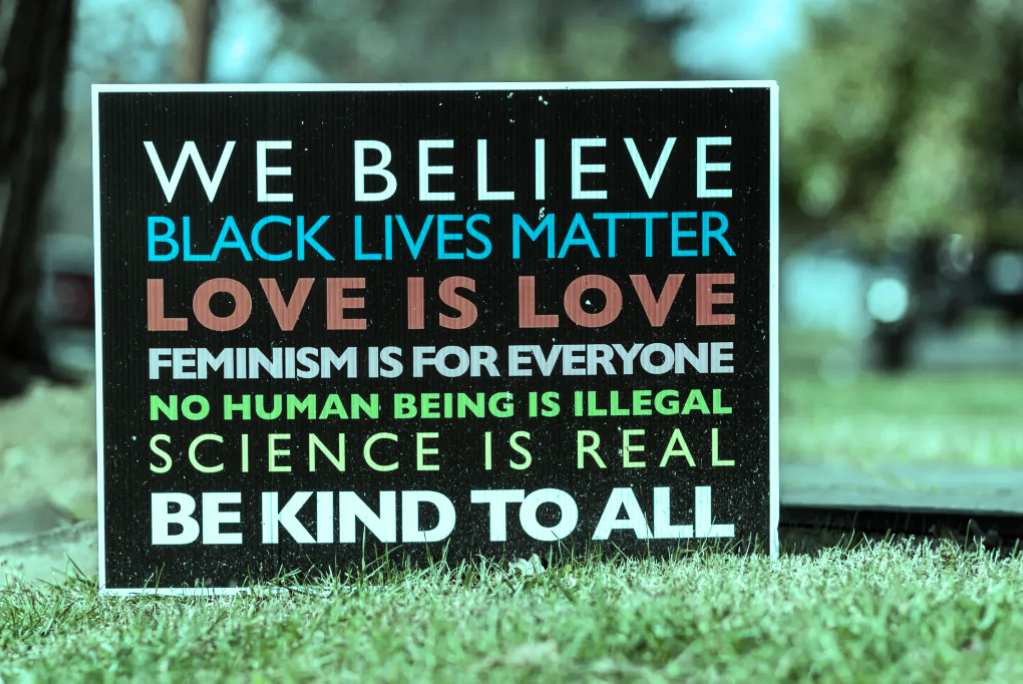

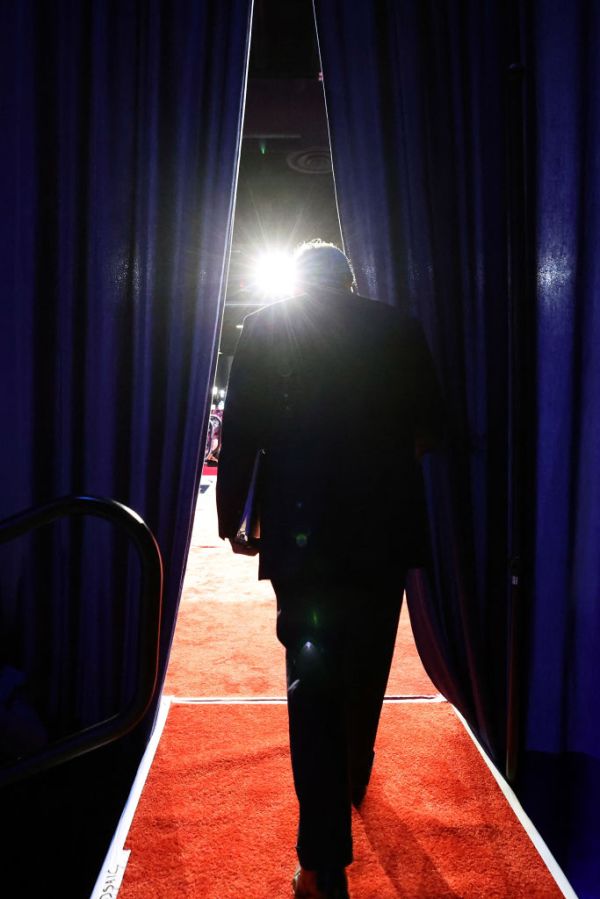
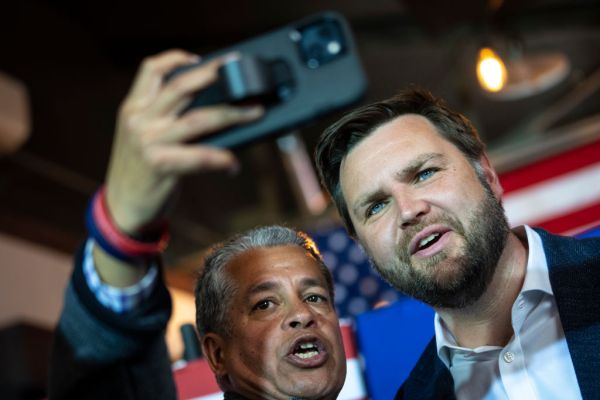


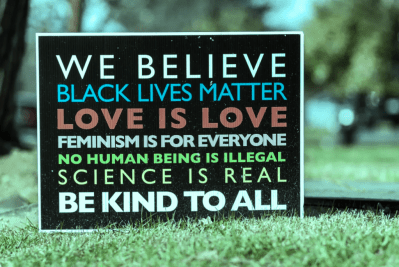
Please note that we at The Dispatch hold ourselves, our work, and our commenters to a higher standard than other places on the internet. We welcome comments that foster genuine debate or discussion—including comments critical of us or our work—but responses that include ad hominem attacks on fellow Dispatch members or are intended to stoke fear and anger may be moderated.
With your membership, you only have the ability to comment on The Morning Dispatch articles. Consider upgrading to join the conversation everywhere.